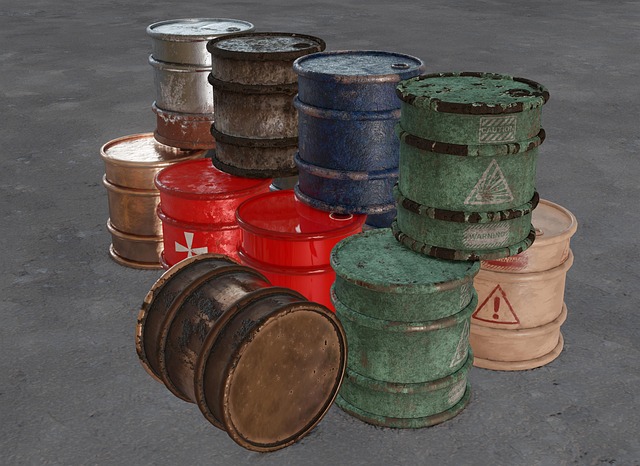Selecting optimal oil changes for your vehicle involves considering car age, driving habits, climate, and mileage. Personalized choices between mineral oils and synthetic options ensure engine protection. High-mileage drivers and off-road enthusiasts require specialized services. Regular seasonal changes with top-tier motor oil extend engine life. Adhering to recommended intervals, typically 5,000-10,000 miles, ensures peak performance. Auto experts offer tailored advice for optimal lubrication based on specific vehicle needs.
“Optimizing your vehicle’s performance and longevity begins with a simple yet crucial task: regular oil changes. This comprehensive guide explores the best time to get your oil changed, delving into key factors like understanding recommended intervals, considering environmental conditions, evaluating driving habits, and choosing the suitable oil type.
We also dissect when professional advice is indispensable for safe and efficient Select Oil Changes. By the end, you’ll be equipped with the knowledge to make informed decisions for your vehicle’s health.”
- Understanding Oil Change Intervals
- Environmental Factors to Consider
- Driving Habits and Oil Lifespan
- Choosing the Right Type of Oil
- When to Trust Professional Advice
Understanding Oil Change Intervals

Understanding Oil Change Intervals is a crucial aspect of maintaining your vehicle’s optimal performance and longevity. The frequency at which you need to get an oil change depends on several factors, including the age of your car, driving habits, and the type of oil you use. Most manufacturers recommend a general interval of every 5,000 to 7,500 miles, but this can vary. Regularly checking your vehicle’s owner’s manual is essential for accurate guidance tailored to your specific make and model.
When selecting oil changes, consider not just the recommended intervals but also the type of oil. Traditional mineral oils are affordable but may not offer the same level of protection as synthetic oil benefits, which can withstand higher temperatures and provide better friction reduction. Off-road oil selection is another factor to keep in mind if your driving involves rugged terrain, as these conditions can accelerate oil degradation. Using a grease gun for oil service can also ensure that the process is done efficiently, maintaining the integrity of your vehicle’s engine.
Environmental Factors to Consider

When considering the best time to get your oil changed, environmental factors play a significant role. The climate and weather conditions can impact both the performance of your vehicle’s engine and the overall process of oil change. For instance, during colder months, using synthetic oil offers numerous benefits, such as superior cold-weather performance and faster warming up compared to conventional oils. This is crucial for ensuring optimal engine efficiency when starting your car in low temperatures.
Additionally, selecting top tier motor oil that meets or exceeds the manufacturer’s recommendations can help protect your vehicle’s engine from wear and tear caused by environmental pollutants. Regularly changing your oil at the prescribed intervals, taking into account both seasonal changes and synthetic oil advantages, will contribute to a longer engine life and better fuel efficiency.
Driving Habits and Oil Lifespan

Your driving habits play a significant role in determining how often you need to get your oil changed. High-mileage drivers or those who frequently drive in harsh conditions, such as hot summers or through dusty industrial areas, will require more frequent oil changes. Aggressive driving styles that involve rapid acceleration and hard braking can also contribute to faster oil degradation.
When considering the best time for an oil change, it’s beneficial to understand the advantages of synthetic oils. These advanced lubricants offer enhanced protection against wear and tear, improving engine longevity. Moreover, synthetic oil benefits include superior performance in extreme temperatures, ensuring optimal lubrication during those hot summer oiling sessions or when navigating through industrial environments. Regular oil changes with high-quality synthetic oil can be particularly beneficial for maintaining your vehicle’s efficiency and longevity.
Choosing the Right Type of Oil

When selecting an oil change, it’s crucial to consider your vehicle’s make and model, along with its mileage and operating conditions. Different cars have different oil requirements, so using the right type of oil is essential for optimal performance and longevity. High mileage oil recommendations are specifically designed for vehicles with over 75,000 miles, offering enhanced protection against wear and tear.
Choosing between synthetic and conventional motor oils, such as top tier motor oil, depends on your vehicle’s needs. Synthetic oils provide better protection and longer intervals between changes compared to their conventional counterparts. However, not all cars are compatible with synthetic oils, so it’s crucial to check your vehicle manufacturer’s guidelines. Following the recommended service interval, typically every 5,000 to 10,000 miles or as per the owner’s manual, ensures your engine stays in peak condition.
When to Trust Professional Advice

When it comes to choosing the best time for an oil change, it’s always wise to trust the expertise of professionals in the automotive field. Mechanics and skilled technicians have extensive knowledge about various vehicle makes and models, and they stay updated with the latest industry standards. They can provide tailored advice based on your car’s specific needs, age, mileage, and driving conditions.
For instance, for those who rely heavily on their vehicles for rugged terrain or off-road adventures, a specialized grease gun oil service might be recommended. Different types of industrial oil changes cater to distinct driving styles and environments, ensuring that your engine receives the optimal lubrication for both everyday commuting and extreme conditions like off-roading. This personalized approach is particularly valuable when it comes to selecting the right oil, as professionals can guide you through the vast array of options available, from conventional to synthetic blends, each suited for specific vehicle requirements.
Regular oil changes are vital for maintaining your vehicle’s engine health, and understanding the optimal timing is key. By considering driving habits, environmental conditions, and choosing the suitable oil type, you can maximize engine lifespan. Remember, staying informed about oil maintenance is a proactive step towards ensuring your car runs smoothly and efficiently. So, whether you’re doing it yourself or relying on professionals, the best time for an oil change is when you prioritize your vehicle’s well-being.
